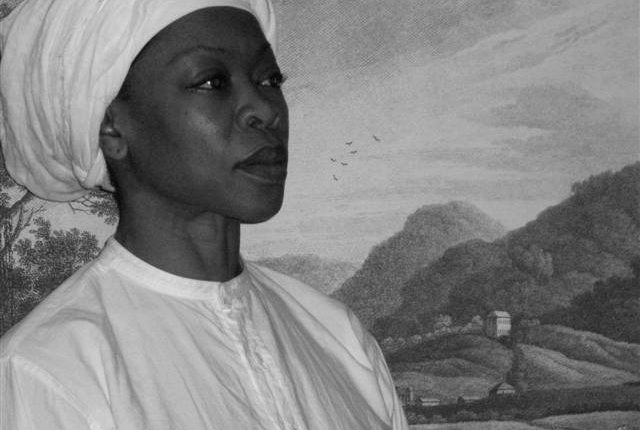Queen Nanny lived during the late 17th century; she was born into the Ashanti people in present-day Ghana and escaped from slavery after being transported.
She and her relatives were sold as slaves and got transported to Jamaica and ended up being the Maroon leader in the early 18th centuries.
The Maroons are descendants of West Africans. They were known as Coromantie or Koromantee, and were considered ferocious fighters.
A minority of slaves originated from other regions of Africa, including the Congo and Madagascar.
After being brought to Jamaica in the course of the Transatlantic slave trade, many slaves revolted against their oppressors and formed their own communities in the hilly interior of Jamaica.
During a period of 30 years, she contributed towards the escape of more than 1,000 slaves and helped them resettle in the Maroon community called Nanny Town.
Nanny Town, placed as it was in the mountains away from European settlements and difficult to assault.
Nanny limited her attacks on plantations and European settlements and preferred instead to farm and trade peacefully with her neighbours.
She did, however, make numerous successful raids to free slaves held on plantations and it has been widely accepted that her efforts contributed to the escape of almost 1,000 slaves over her lifetime.

She was feared and revered as a guerilla warrior who could use powers that ascended into the realm of the supernatural to confuse the enemies of the Maroons.
She was said to be an Obeah woman as well.

Captain William Cuffee, known as Captain Sambo, is credited as having killed Nanny in 1733 during one of the many and bloody engagements of Thjppe war.
During one of the bloody battles, Nanny was killed. The war still went on until Cudjoe, a maroon leader and brother of Nanny, signed a peace treaty with the British.
She was declared a national heroine in 1975 by the Jamaican government and awarded the title of “Right Excellent” due to her enormous accomplishments.
Her portrait is on the 500 Jamaican dollar bill. She is also on the logo for the Gilder Lehrman Center for the Study of Slavery, Resistance, and Abolition.

Source: www.ghanaianmuseum.com


